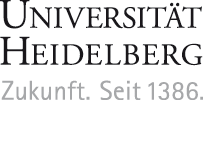545454 – The Number to Call When You Need Help
18 April 2007
University of Heidelberg help-line much in demand – Assistance from student to student
The student workers manning (or in most cases "womanning") the University's recently established help-line have talked to more than 65,000 callers in the course of the last year. The help-line only started in summer 2005 but it has already turned into a genuine success story. For almost a year now, the University has also been operating an e-mail portal providing the same kind of service. Journal@RupertoCarola decided to find out what it's like operating between incoming calls and the knowledge web.
"University of Heidelberg help-line, Magdalena Uhl speaking. How can I help you?" With unflappable composure the 24-year-old student starts to unravel the tangled knot of information that has accumulated over the past few weeks in the mind of the first-year student at the other end of the line. Magdalena Uhl is one of the 30 students answering incoming calls to the University's phone portal. And yes, all stereotypes are confirmed: most of the students answering the phones here are women. "Perhaps women simply like to talk on the phone more than men," suggests Natalie Haag at the desk opposite Magdalena.
The fact that undergraduate assistants are on call to give advice to their fellow students is very much a part of the overall help-line design. The intention is to offer a service "by students for students". This approach is a response to the experience gained by the counselling office of the ZSW (Center for Student Counselling and Continuing Education), explains Daniel Niebel (31), the man in charge of the portal and the only full-time employee. "It's a good idea to have students working here," Magdalena Uhl chimes in. "Often we understand the students' problems better than anyone else because we've been there too." Many callers are relieved when things are explained to them in an understandable manner, from one student to another.
What is the portal actually for? "We want to inform and advise the students from their very first contact with the University all the way up to graduation. And we also want to indicate further options for obtaining advice or counselling," replies Daniel Niebel, himself a Heidelberg graduate. Part of the new scheme is the requirement that counselling appointments with the ZSW now have to be made via the help-line. The statistics show that around 90 percent of the inquiries can in fact be answered on the spot. Only rarely are they so complicated that students have to be referred to their departments for further advice.
Of course, a good deal of off-the-cuff knowledge is needed to deal with the job. The mass of information involved in finding one's way around such a formidable enterprise as a university is likely to overtax even the brightest academic brain. This is where the knowledge web comes in and it is "very, very extensive," sigh Magdalena and Natalie. Like Daniel Niebel they have been working here from day one after training for two months and cramming up on masses of useful information. Regular supervisions ensure that the standards thus set are also maintained. "It was almost like a new subject at school," says Magdalena Uhl, the person all her student friends now turn to when they're at a loss. After all, the knowledge web is only a back-up on the computer. In the real-life situation all the information has to be stashed away somewhere between the earplugs on the headset.
Demanding as the job is, the two students are very glad to have it. Nice colleagues, flexible working hours and a regular pay slip; this is how 25-year-old Natalie Haag describes the perks associated with the job. And of course, it's very satisfying to be able to help your fellow students. You get the whole range, she tells us: the nice ones, the desperate ones and sometimes even the insolent ones. They all prefer to call in the morning, mostly on Mondays.
Natalie and Magdalena also have some rather bizarre anecdotes to tell, for instance the film company that wanted to find out whether it would be possible to study law in 21 semesters. Or the lady who inquired about the prospects for a career in criminal justice, though this career path cannot in fact be embarked on at the University of Heidelberg. Actually, she was inquiring on behalf of her daughter – and she was only 14!
The University help-line is on call Mondays to Thursdays from 9 a.m. to 4 p.m. and on Fridays from 9 a.m. till 1 p.m. Just ring 06221/545454.
http://www.uni-heidelberg.de/studium/journal/
Please address any inquiries to:
Alexander
Werschak
werschak@zuv.uni-heidelberg.de
Dr.
Michael Schwarz
Press Officer of the University of Heidelberg
phone:
06221/542310, fax: 54317
michael.schwarz@rektorat.uni-heidelberg.de
http://www.uni-heidelberg.de/presse/index.html
Irene
Thewalt
phone: 06221/542310, fax: 542317
presse@rektorat.uni-heidelberg.de


